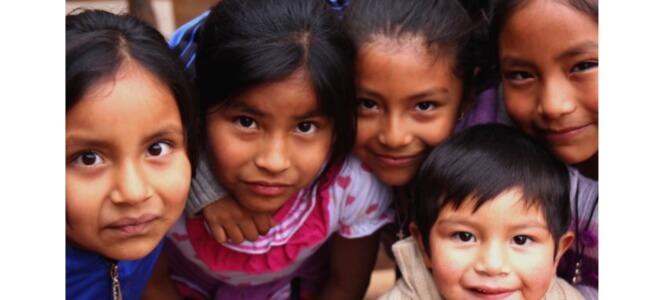Teaching children about etiquette is an essential aspect of parenting, as it helps them develop social skills and cultural sensitivity. In India, where traditions and customs hold immense importance, instilling Indian etiquette in children becomes even more significant. Indian etiquette encompasses various aspects, including culture, social behaviour, and manners, which play a vital role in shaping a child’s character and interactions with others.
In ancient times, the Gurukul system not only taught children various life skills and instilled knowledge about various subjects, but also inculcated deep-rooted values.
Indian etiquette for kids includes various practices related to giving respect to elders, eating, visiting places of worship, participating in festivals, and more. Read this post to know about valuable parenting tips on Indian etiquette for kids, encompassing culture, manners, and social behaviour.
Table of Contents
Indian Etiquette For Kids

By teaching children about Indian etiquette, parents can equip them with valuable tools for navigating social situations with grace and respect.
For fostering refined behaviour and navigating social interactions with elegance and respect, explore valuable insights and practical tips in posts focusing on teaching your kids about basic manners – good manners, etiquette and manners, and social etiquette. This post covers some key aspects of Indian etiquette for kids that every parent should impart to their children.
What is Indian Etiquette? Indian Etiquette For Kids
Indian etiquette is a set of cultural norms and behavioural expectations followed in Indian society. It reflects the rich heritage and traditions of India, emphasizing respect, humility, and community values. Indian etiquette encompasses various aspects, including respect for elders, hospitality, food etiquette, greetings, attire, and behaviour in public spaces. These practices help individuals develop a strong sense of belonging, respect for others, and an understanding of cultural diversity.
15 Things Every Parent Should Teach Their Child About Indian Etiquette | Indian Etiquette For Kids – Parenting Tips

Here are 15 essential parental tips that help teach “Indian Etiquette For Kids” that every parent should teach their child. These tips about Indian etiquette for kids emphasize the importance of respect for elders, polite greetings, table manners, sharing, and appropriate dressing. It also highlights how these practices can help children navigate social situations with cultural sensitivity and grace.
Respect for Elders
Teach your child to greet and address elders with respect, using appropriate terms such as “auntyji” or “uncleji.” Encourage them to seek blessings from elders by touching their feet, a customary gesture in Indian culture. This teaches children to value wisdom and experience while fostering a sense of respect for the older generation.
Polite Greetings
Teach your child to greet others with a smile and a respectful “Namaste” or “Pranam,” joining their palms together in a prayer-like gesture. This traditional form of greeting is considered polite and respectful, emphasizing equality and humility.
Table Manners
Teach your child the importance of proper table manners, such as washing hands before meals, sitting properly, using cutlery appropriately, and not talking with their mouths full. This helps children develop self-discipline and consideration for others while dining.
Sharing and Generosity
Instil the value of sharing and generosity in your child. Encourage them to share their toys, books, and other belongings with friends and siblings, fostering a sense of community and empathy. This teaches children to appreciate the joy of giving and promotes harmonious relationships.
Dressing Appropriately
Teach your child to dress modestly and respectfully, considering the occasion and cultural norms. Encourage them to understand the significance of traditional attire on special occasions and festivals. This instils a sense of cultural pride and respect for Indian traditions.
Saying “Sorry” and “Thank You”
Teach your child to apologize when they make a mistake or hurt someone’s feelings. Also, emphasize the importance of expressing gratitude by saying “thank you” for acts of kindness or help received. This teaches children the value of accountability and appreciation.
Respecting Personal Space
Help your child understand the concept of personal space and teach them to respect it. Encourage them to ask for permission before touching or hugging others, ensuring they respect others’ boundaries. This cultivates a sense of empathy and consideration for others’ comfort.
Being Punctual
Teach your child the importance of time and being punctual, as it is considered a sign of respect for others’ time. Encourage them to be on time for school, family gatherings, and other events. This helps children develop a sense of responsibility and consideration for others’ schedules.
Respecting Different Religions
Foster an understanding and respect for different religions and beliefs. Teach your child about the diversity in India and how to be respectful towards various religious practices and customs. This promotes tolerance, inclusivity, and a broader perspective of the world.
Valuing Elders’ Advice
Teach your child to listen attentively to the advice and guidance offered by elders. Instil the importance of seeking wisdom from experienced individuals and showing gratitude for their teachings. This helps children develop humility, respect, and a willingness to learn from others.
Being Polite to Guests
Teach your child how to be hospitable and courteous to guests. Encourage them to greet guests with warmth, offer them a seat, and serve them water or refreshments. This cultivates a sense of hospitality, kindness, and a welcoming attitude towards others. Teach them the traditional Indian concept of, “Atithi Devo Bhavah.”
Respecting National Symbols
Teach your child to show reverence towards national symbols, such as the Indian flag and national anthem. Educate them about the significance of these symbols and the need to treat them with the utmost respect. This helps children develop a sense of patriotism, pride, and civic responsibility.
Using Polite Language
Encourage your child to use polite language while conversing with others. Teach them to address people using respectful terms and avoid using rude or derogatory language. This fosters effective communication, empathy, and respectful interactions with others.
Good Hygiene Practices
Teach your child the importance of personal hygiene, including regular bathing, brushing teeth, and keeping their surroundings clean. Emphasize the need to maintain cleanliness and hygiene at all times. This cultivates habits of self-care, cleanliness, and consideration for personal and public well-being.
Being Gracious in Success and Failure
Teach your child to be humble and gracious in both success and failure. Help them understand that being boastful about success or blaming others for failure goes against the principles of Indian etiquette. This fosters a balanced and positive attitude towards achievements and setbacks, promoting humility and resilience.
Indian Etiquette For Kids – Parental Tips With The Dos and Don’ts
This is a list of essential parental tips, highlighting the dos and don’ts to help parents navigate the challenging yet rewarding journey of raising their children.
Do
- Do greet elders with respect
- Do use polite language and greetings
- Do practice good table manners
- Do respect personal space and boundaries
- Do value and seek guidance from elders
- Do dress appropriately for occasions
- Do apologize and express gratitude
- Do listen attentively to others
- Do practice good hygiene
- Do respect different religions and beliefs
- Do be punctual and respect others’ time
- Do treat guests with hospitality and courtesy
- Do show reverence towards national symbols
- Do be inclusive and respectful of diversity
- Do practice humility in success and failure
Don’t
- Don’t interrupt while others are speaking
- Don’t use rude or derogatory language
- Don’t touch or hug others without permission
- Don’t be late for appointments or gatherings
- Don’t boast or show off in success
- Don’t blame others for your failures
- Don’t disrespect elders or their advice
- Don’t disregard personal hygiene
- Don’t discriminate based on religion or beliefs
- Don’t waste others’ time by being late
- Don’t neglect or mistreat guests
- Don’t disrespect national symbols
- Don’t discriminate based on diversity
- Don’t let success or failure affect your character
- Don’t forget to be humble and grateful
Instilling Indian etiquette in children is a significant responsibility for parents. By teaching children about Indian culture, social behaviour, and manners, parents can help them develop respect, humility, and a sense of community. These values and practices enable children to navigate social situations with grace and sensitivity, fostering strong relationships and cultural understanding.
By imparting Indian etiquette to their children, parents lay the foundation for a future generation that is respectful, kind, and culturally aware. This not only benefits their personal growth but also contributes to the preservation of Indian traditions and values in an ever-changing world.
Thank you for taking the time to read our post on Indian Etiquette For Kids – Parenting Tips. If you found this information valuable, we encourage you to share it with your family and friends on social media. For regular updates and more insightful content, we invite you to subscribe to our blog and follow us on Instagram and Twitter. Stay connected and stay tuned for more parenting tips and cultural insights.

Thanks for visiting our site nirvandiaries.com and taking the time to read this post.
If you wish to collaborate or work with us then reach us at [email protected]
We’d love it if you’d comment by sharing your thoughts on this post and share this post on social media and with your friends.
Follow our journey on our social media channels:
Facebook Twitter Instagram Pinterest





